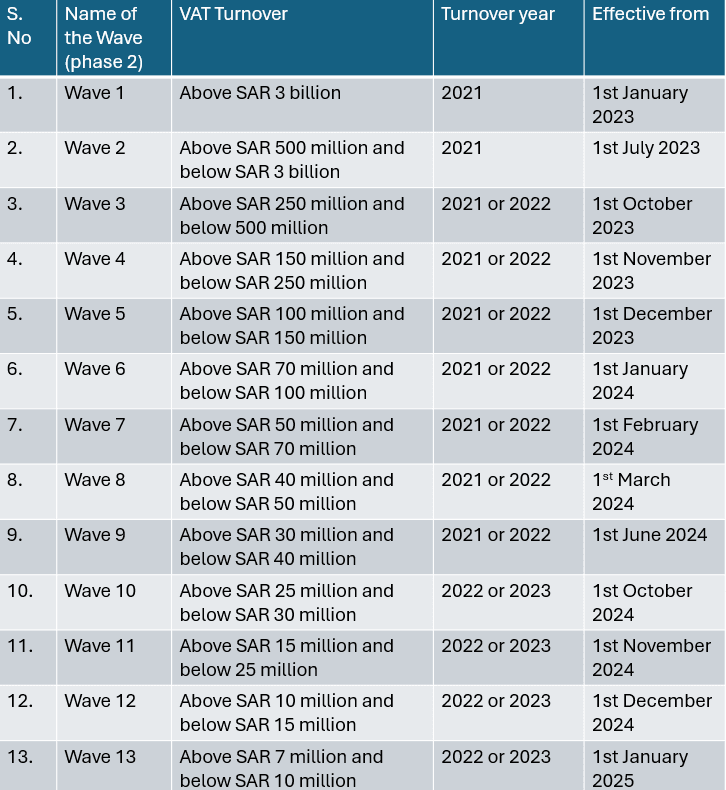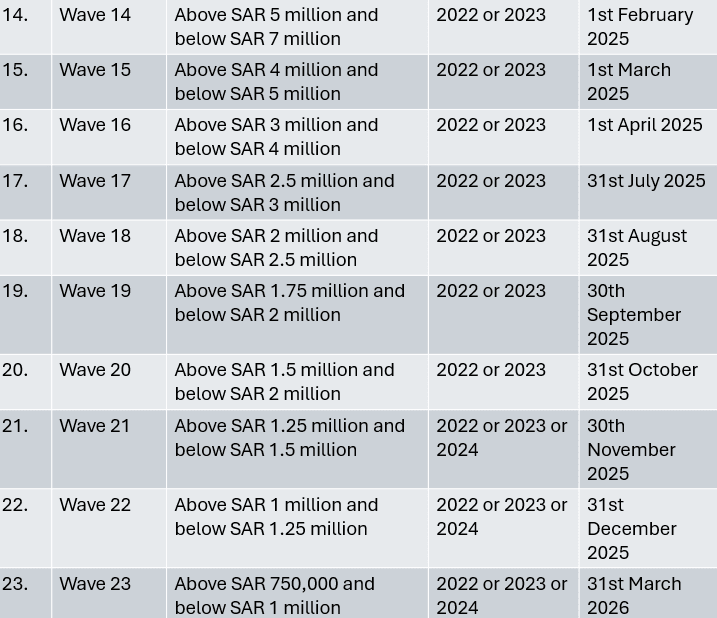Building on our previous blog on e-invoicing's core benefits for Saudi Arabia, Part 2 will walk you through the essential roadmap.
We'll now uncover ZATCA's critical phases and evolving wave timelines, understand the impact of this digital evolution, and share some consequences of non-compliance.
So, get ready to master the ZATCA mandate:
ZATCA Phase 1 (Generation) vs. Phase 2 (Integration)
Generation as Phase 1:
This phase was implemented on December 4, 2021. Broadly, this phase emphasized taxpayers to generate e-invoices electronically by putting basic details in the application.
Also, taxpayers were supposed to generate e-invoices, credit notes, and debit notes via any reliable ZATCA-compliant e-invoicing solution. This rule covers all taxpayers and any parties issuing tax invoices on behalf of VAT-registered suppliers, excluding non-resident taxpayers.
However, the generation phase did not require any integration to send and receive e-invoices through the ZATCA e-invoice system (FATOORAH).
Integration as Phase 2:
The phase 2 scenario started on January 1, 2023, in the form of waves for specific taxpayer groups depending on their revenue or turnover.
It involves integrating e-invoicing solutions with ZATCA’s e-invoicing system (FATOORAH) and sending e-invoices to respective parties for validation.
This phase involves specific steps to complete the generation, submission, validation, and sharing of e-invoices:
Connect to FATOORAH using APIs.
Generate a Universally Unique Identifier (UUID).
Create and add a digital signature
Get a sequential number for each e-invoice.
Include a cryptographic stamp
Sellers must “clear” the TAX invoice from ZATCA in real-time and then
Share it with buyers as a legally valid e-invoice.
Phase 2 is an amalgamation of waves for a group of targeted taxpayers. It began on January 1, 2023, and applies to businesses whose turnover exceeds SAR 3 billion.


In simple words, the list shows when businesses in Saudi Arabia must start using the new digital invoicing system (Phase 2), based on their revenue. Initially, it applied to the bigger businesses only, and now smaller businesses are gradually being added over time.
Consequences of Non-Compliance
In KSA, ZATCA issues warnings instead of penalties for one violation; it follows a similar pattern for three months. However, if the offence repeats, it might result in harsher penalties such as a SAR 1,000 fine, which increases if the required changes are not made within the given timeframe.
If you make a second violation, then you have to pay SAR 1000.
If you make a third violation, then you have to pay SAR 5000.
If you make a fourth violation, then you have to pay SAR 10,000.
If you make a fifth violation, then you have to pay SAR 40,000.
Types of violations and penalties
Incorrect amendments or cancellations of e-invoices: SAR 10,000 to SAR 50,000
Failure to report system issues affecting e-invoicing: Warning
Non-issuance or non-archiving of e-invoices: SAR 5,000 to SAR 50,000
Missing QR code on simplified invoices: Warning
Absence of buyer VAT registration number on e-invoices (B2B): Warning
ZATCA is nowhere going anywhere anytime soon, as it has been here for quite some time as a mandatory compliance by the government. So, with ZATCA, how does the future look?
E-invoicing's Evolving Role in Saudi Arabia
With e-invoicing becoming increasingly prevalent, Saudi Arabia witnesses advanced digital infrastructure and the readiness of the private sector to absorb technology developments. The leaders believe that e-invoicing or FATOORAH is a hit. And there are over 14,000 e-invoicing systems integrated with the FATOORAH, and over 400 million invoices have been exchanged via the platform since 2023.
Therefore, e-invoicing in Saudi Arabia proved a good decision to track transactions, uncover fraud activities, and support the tax system as well as the economy.
Your Trusted Odoo Partner in KSA
Sedin Technologies has been a technology provider with our expert hand in Odoo solutions. As we expand our presence in the Middle East and with deep capabilities across digital services, data solutions, enterprise platforms, and AI-powered applications, our team in Saudi Arabia is well-equipped and versatile to forge partnerships with both enterprises and high-growth startups seeking to future-proof their operations.
We will happily integrate your Odoo or other CRM system and make it ZATCA-ready for future transactions. As an official Odoo partner, our team of experts handles every aspect of ZATCA integration, from automated e-invoice generation to real-time submissions to the platform, ensuring your business is fully compliant with Saudi Tax regulations.
If you have a list of questions related, we are happy to answer them all. All you need to do is get in touch.
Ma'a as-salama!




